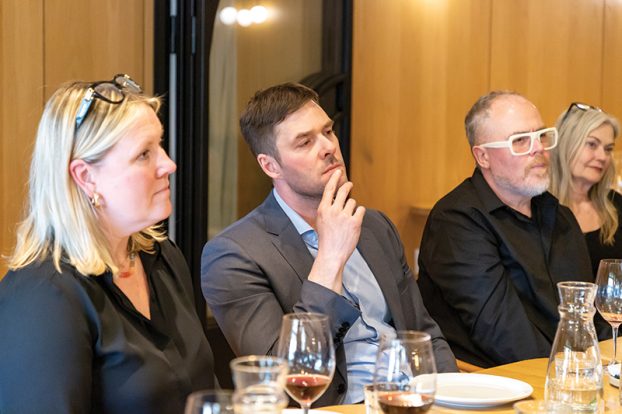One good thing about the anonymity of the Internet is that it makes it easier for people to admit they’ve been screwed. At least, that’s what 26 out of 51 respondents did when they answered ‘yes’ to an online poll at Strategymag.com that asked the question, ‘Have you ever been seriously misinformed by a market research ‘expert’?’
The youth marketing, cool-hunting, trend-watching fad seems to have peaked (and crashed) with the dot-com era, but with the advent of online research panels, hucksters – sometimes with good intentions – continue to innovate.
‘It’s like spam,’ says Scott Megginson curtly. The manager of consumer insights for Toronto-based Pepsi QTG Canada says he is flooded with unsolicited offers, year-round. ‘Long past your planning you start getting calls from people with a new service or a new teen survey or trend survey or new online methodologies with panels…. Some of the stuff you see online is frightening.’
And often the people who seem like bona fide researchers with real experts in the field are offering a lot less than they advertise.
Max Lenderman, president of Montreal-based youth marketing company Gearwerx, describes an experience he had while working for a pharmacy and foodstuffs company.
‘We came in and got presented a 90-page deck from a youth research company that went through all these consumer attitudes, pie charts and everything. The clients were sitting there nodding as though they were getting all this data. At the end I asked how many people they had interviewed and it was 13. They were presenting it like it was a larger slice of the consumer pie.’
Start-up research companies are not always bad news. ‘Having people out there pushing the limits can inspire people to take a look at the traditional methods and maybe revamp them a bit,’ says Michele Erskine, VP at Toronto’s Solutions Research Group Consultants. ‘When it gets bad is when what is promised or what [the research is] purported to do is blown way out of proportion. Often that has less to do with the people offering it up and more to do with the hopes of the people buying it.’
And there’s the rub. How do marketers, eager to come up with the best information, the freshest insight, or the coolest new trend, avoid the bad seeds?
Check the company
‘The first thing I do is grab the PMRS book,’ says Megginson, referring to the Professional Marketing Research Society, of which he is a board member, and which is dedicated to setting and maintaining professional standards for its 1,800 members across the country. Membership implies adherence to a standard code of conduct guiding the profession.
PMRS also recently launched an accreditation program, the Certified Marketing Research Professional designation, and is now working to accredit longstanding industry players as well as graduates of a new nine-course program, which crowned its first recipients last fall.
‘I hate to say it, but marketers often get the research they deserve,’ says Irma Zandl, president of New York-based The Zandl Group, a four-star trend-watching research company since the mid-’80s. ‘When I do even a modicum of follow-up on the methodologies of [unscrupulous research companies], it’s apparent that it’s all smoke and mirrors. For example, if a small company tells you they have 20,000 online trendsetter panelists and that they provide each one with a digital camera, you have to ask yourself whether they could really afford to spend over a million dollars outfitting panelists with cameras.’
Check your expectations
Market research can’t do everything; make sure that what’s being promised is feasible, and that it’s what you want.
‘We try and set very clear ground rules for what research needs to cover – and make sure the client needs to do research,’ says Max Valiquette, president of Toronto youth marketing consultancy Youthography.
‘A client came to us with a concept for a series of ads and wanted to test the concept for the entire series. To be honest, there was no real way to test that because the beauty would have come in seeing all those ads together and getting a full sense of it on air. You weren’t going to be able to replicate for consumers the idea of seeing a different ad every day or once a day. Don’t research that.’
If you do have something specific to research, make sure that the research team can clearly identify what is and is not possible to learn.
Check your calendar
Most qualitative research groups will invite clients to watch focus groups in session, and it’s a good idea to check your calendar and make sure you can attend. You get to see your customers in action, and good firms will have someone on hand to help explain what’s going on during the session.
‘One of the comments I hear fairly often is that agencies try to limit the number of people in the back room,’ says Valiquette. ‘My comment would be the opposite. Put everyone that you can in that back room.’
The fundamental problem with qualitative market research of any kind is usually rooted in a misunderstanding of what qualitative research is. That’s the reason, says Erskine, that many clients or agencies who do their own research may find themselves with less than satisfactory results. For her part, Erskine has been moderating focus groups for years, and has learned a lot from the experience. For one thing, she rehearses before going into a session.
‘I think it’s an art and it takes practice and a lot more actual knowledge of marketing principles and research principles than people realize. There’s a big difference between sitting down and talking to people and actually doing a qualitative discussion where you have to put a lot of thought into what answers you’ll get to different questions and what questions can get you the right answers. It’s very rare that a client just wants you to go in and talk to people – you’re there for your expertise.’
One of the tricks Erskine has learned is to do a bit of written work with participants before the actual interviews. After the session, she can use this material to see if anyone’s opinion has changed once the participant has heard other opinions in the group. ‘I’ve had instances where I’ve had to say that one person’s opinion needs to be discounted because they were affected too much by someone in the group.’
The other trick for her is that she’s gotten to know the youth market pretty well. That, says Gearwerx’s Lenderman, is the real trick to qualitative research. ‘The best companies are immersed in their segment and care about them and respect their opinions. They’re not just doing seniors one day and business travellers the next.’























